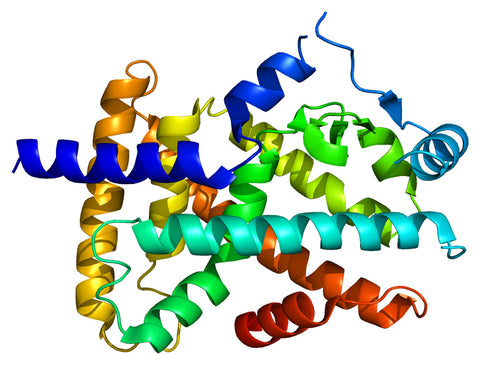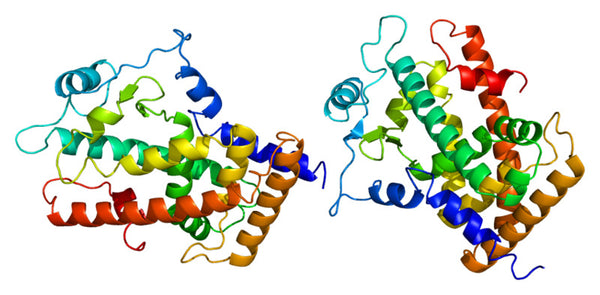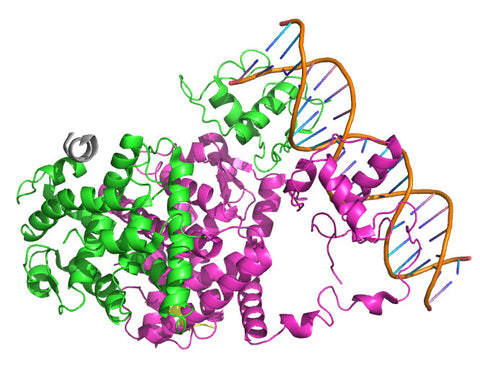PPARs α, β, and γ
Gene activators, in the form of PPARs, will direct the exact amount of nutrients needed by your body, unifying biological systems, functions, and processes. Your immune system will then perform optimally at all times.

PPAR-Alpha
Peroxisome proliferator-activated receptors are a subgroup of the nuclear hormone. As for Crypto PPAR, we have 3 bio-organic components known as PPAR y, PPAR β, and PPAR γ. The PPARs series is paired with the benefit of CELLULAR NUTRITION in the form of nucleic acids that support the cells activated by your genes. Our rich superfood micro-algae component provides the raw and natural nutrition needed to fuel your body for healing and optimal health.

PPAR-Delta / PPAR-Beta
PPARs are key regulators of fatty acid and lipoprotein digestion. It has been researched with all the properties of glucose homeostasis in which it balances insulin and glucagon to maintain blood glucose. It also has its unique features in cellular proliferation differentiation which balances cell apoptosis and cell division and involves the immune response reaction. PPARs are essential targets in treating metabolic disorders such as type 1 and type 2 diabetes mellitus and concerning chronic inflammatory diseases such as atherosclerosis, arthritis, chronic pulmonary inflammation, pancreatitis, inflammatory bowel disease, and psoriasis.
In the skin, PPARs play an essential role in keratinocytes' homeostasis, exhibiting pro-differentiating, anti-proliferative, and immune modulator functions, which suggest a role in skin diseases. As in psoriasis, they help reduce skin inflammation and reduce the process of keratinocytes homeostasis in the skin. By means, the process of skin replacement is slowed, which reduces the plaque formation in the skin that overlaps each other.
Thus, it improves skin appearance with very minimal or most frequent skin replacement where they wouldn't be any plaque formation after several times.
PPARs have anti-inflammatory properties and are useful in inhibiting inflammatory mediators. It works fine in relieving gout pain and also reduces the swollen toe. The three PPARs receptors are ligand-activated transcription factors belonging to the nuclear hormone receptor superfamily.

PPAR-Gamma
PPAR-gamma is effective in treating inflammation. It decreases the inflammatory response of many cardiovascular cells, particularly endothelial cells. PPAR-y had been recognized as playing a fundamentally important role in the immune response through its ability to inhibit the expression of inflammatory cytokines and to direct the differentiation of immune cells towards anti-inflammatory phenotypes.
Some findings highlight the genetic impact on the gouty arthritis phenotype's clinical expression, including arthritis phenotype, including arthritis flares, frequently associated with dietary excesses. The nutritional biosensor PPAR-y is a ligand-dependent nuclear receptor and transcription factor regulating insulin sensitivity, adipocyte differentiation, and glucose homeostasis.
